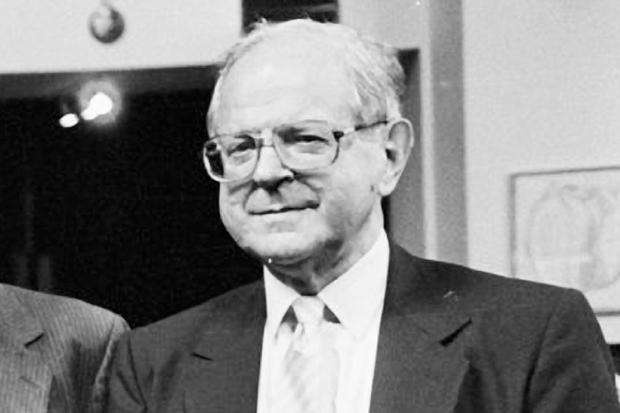The Soviet Union showed its Western sympathizers how brutal illiberal governments can be. Right-wing nationalists are now learning that same lesson.
"Anti-Sovietchik No. 1"
When the Great Terror, Robert Conquest’s documented expose of Stalin’s Purge Trials, was published in 1968, the response from the Kremlin was predictable. Conquest, who died last week, was denounced as peddling fascist propaganda by Leonid Brezhnev, the hardline replacement for the thaw-attempting Nikita Khruschev when the latter was toppled in 1964. But in private, the truthfulness of Conquest’s account was validated by the KGB, who consulted it to see what their predecessors had been up to.
Today it is fairly commonplace among historians that the Purge Trials were a monstrosity and its victims innocent. But this was unwelcome in 1968. Western fist-clenchers against the Vietnam War were taking to the streets proclaiming themselves Leninists and Maoists, and in the case of the Black Panthers and Weatherman, Stalinists. Among the academic Left, Conquest was attacked by those such as Eric Hobsbawm, a historian who went to his death defending Stalin. Brehznev had re-Stalinized the Soviet Union, dumping dissidents into Gulags and into mental hospitals (which had been Khruschev’s innovation), and cracking down on satellite states. Anticommunism, even of the liberal variety, was taking a hit from the carnage and hypocritical nature of the Vietnam War. The only concession from the regime came from Khruschev’s Secret Speech of 1956 that solely concentrated on the executions of Party members. Conquest saw this as minor. He widened the scope of his observations to include the 20 million murdered not only in the Purge Trials but in Stalin’s imposed famine in the countryside.
Given the crackdown on the Soviet citizenry in the 1960s, it is remarkable that Conquest was able to be the first historian to document (with hard-to-find witnesses) the atrocities. And this documentation would be vindicated and bolstered by the opening of the Soviet archives in 1991.
Conquest also had the distinction of living to see the regime implode. Unlike Whittaker Chambers, who famously said that his defection from communism to democracy was in essence leaving the winning side for the losing one, Conquest shared with Orwell the belief that the Soviet Union would have to “either democratize or perish.” (It did both). And with his gift of irony as a poet, he couldn’t fail to laugh at a regime—in many ways their greatest fear—he was declared “anti-Sovietchik No. 1” mere months before the Soviet collapse.
Like Orwell, who personally witnessed and could have been a potential victim of the heresy-hunts in Loyalist Spain, Conquest came to his anticommunism from what he witnessed firsthand. Assigned by the British Foreign Office in 1944 to Bulgaria, whose fighting forces were under Soviet command, he was horrified by the communist takeover of the country. He even smuggled his second wife away from the new regime.
Unlike Orwell, he had been an “open member” of the British Communist party since 1937. What is remarkable about his “disillusionment” in Bulgaria was that he didn’t make the well-traveled lurch from the far left to the far right. An early supporter of the American effort in Vietnam, he soon became an opponent, unlike his friend (who went from being a communist to being a Tory) Kingsley Amis. Also unlike Amis, who attacked welfare spongers, Conquest retained a social democratic politics and remained an agnostic. Asked which was worse, the Holocaust or Stalinism, Conquest saw the Holocaust as worse despite the Red Terror’s much higher body counts. Asked what he based this judgment on, he stated simply: “I feel it in my gut.”
And what a gut it was. Orwell had his own gut-check, and it was over the Purge Trials—he said he knew they were a monstrosity because he felt it in their literature. Conquest knew early on as well, and had to face the same kind of leftist hatreds in the 1960s and 1970s that Orwell did in the 1930s (from in some cases some of the very same long-lived radicals).
As academic history remains dominated by vengeful Marxists who never got over seeing a McDonalds in Red Square and actual Russian workers—not CIA plants—pulling down statues of Lenin, Conquest’s passing is bitter-sweet. It is a loss to a profession that once followed the evidence no matter where it led, not where it should have led.



